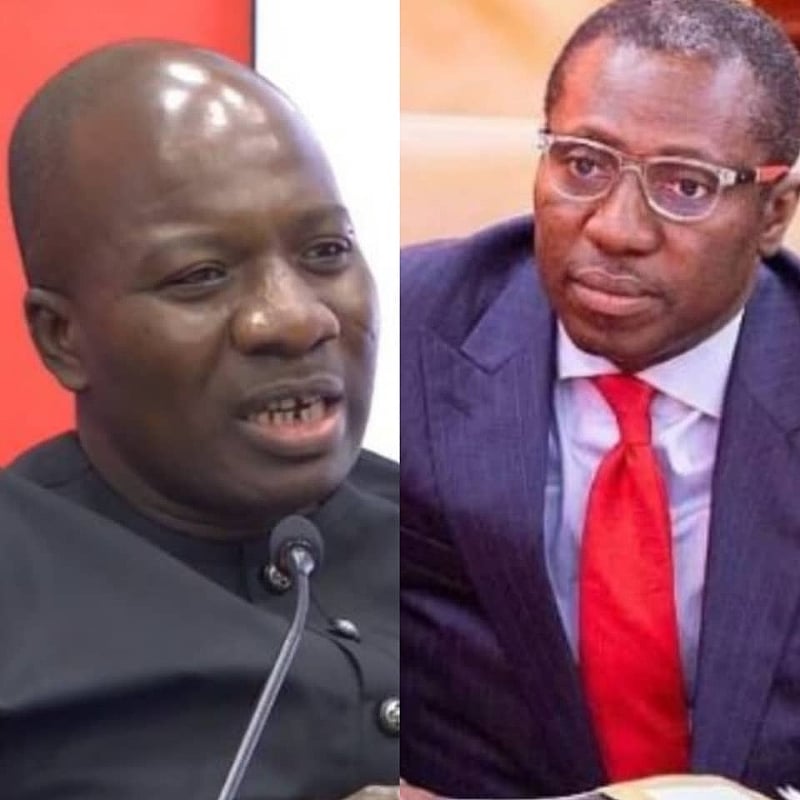The parliamentary vetting process for President John Dramani Mahama’s ministerial nominees took a dramatic turn on January 13, 2025, sparking a heated debate between Bawku Central MP Mahama Ayariga and Minority Leader Alexander Kwamena Afenyo-Markin. The contention arose from Afenyo-Markin’s challenge to the procedural validity of the president’s nominations, specifically concerning the signatory on the communication submitted to Parliament. This seemingly minor detail ignited a broader discussion about the powers of the presidency, the role of the minority in parliamentary oversight, and the interpretation of parliamentary procedures in light of recent Supreme Court rulings.
Afenyo-Markin argued that the communication announcing the ministerial nominees, signed by the Secretary to the President, violated Standing Order 65(1), which stipulates that such communications should bear the signature of the President, the Vice President, or an authorized minister. He contended that this procedural flaw cast doubt on the integrity of the entire nomination process. This assertion effectively questioned the legitimacy of the nominees before the vetting process could even begin, placing the emphasis on adherence to parliamentary rules and the perceived slight to established protocol.
Ayariga, however, countered vehemently, dismissing Afenyo-Markin’s argument as an overreach of his authority. He accused the Minority Leader of using the vetting platform to improperly criticize the president and dictate how he should conduct his appointments. Ayariga maintained that the president has the prerogative to determine the timing and manner of his nominations and that Afenyo-Markin’s concerns were better suited for a press conference than a formal vetting proceeding. This clash highlighted the underlying tension between the executive and legislative branches, with Ayariga defending the president’s authority against what he perceived as undue interference from the minority.
Ayariga further underscored the evolving nature of parliamentary rules, referencing recent Supreme Court decisions that have challenged and overturned certain standing orders. He argued that this legal precedent makes the standing orders less rigid than Afenyo-Markin implied, suggesting that a strict interpretation in this case was unwarranted. This introduction of the Supreme Court’s influence on parliamentary procedure added another layer of complexity to the debate, raising questions about the balance of power between the judiciary and the legislature, and the ongoing interpretation of established parliamentary norms.
The exchange between Ayariga and Afenyo-Markin also touched upon the president’s promise to form a cabinet swiftly upon assuming office. Afenyo-Markin implied that the president had failed to meet this commitment, while Ayariga countered that the president’s promise was to form a cabinet within a reasonable timeframe, not immediately following the declaration of election results. This disagreement reflected the differing interpretations of the president’s pledge, with Afenyo-Markin seemingly advocating for a more literal and immediate fulfillment of the promise, while Ayariga emphasized a more flexible and pragmatic approach.
Afenyo-Markin, in response to Ayariga’s criticisms, defended his right to question procedures and uphold parliamentary standards, rejecting the notion that his actions undermined the presidency. He maintained that his concern was not with the president’s choices of nominees but with ensuring that the process followed established rules. This defense emphasized his role as a guardian of parliamentary procedure and his responsibility to ensure transparency and accountability within the government. The clash, therefore, became a microcosm of the broader interplay between the different branches of government, the evolving nature of legal interpretations, and the constant negotiation of power and procedure within a democratic framework. The debate underscored the importance of clear communication, adherence to due process, and the delicate balance between respecting executive authority and ensuring legislative oversight.














